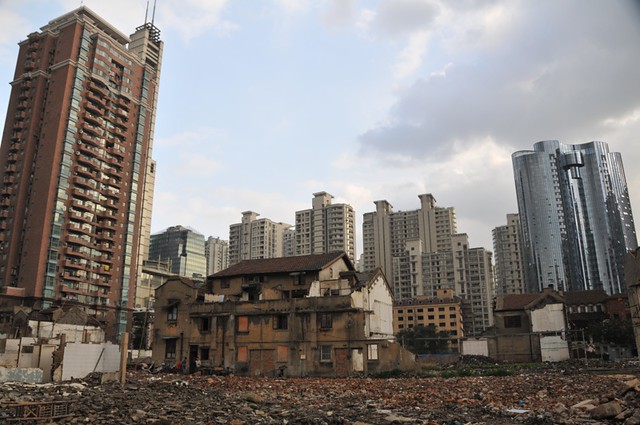Spacing Saturday highlights posts from across Spacing’s blog network in Vancouver, Toronto, Montreal, Ottawa, and the Atlantic region.


A new city was founded this week, the city of Spacington . Spacing staffers will use Sim City to attempt to turn Spacington into a 21st century utopia over the coming weeks using feedback from reader commentary. Comment early, comment often and help build the city.
Gordon Price uses the Prince Points feature to look into the story of a cluster of towers at Lougheed Town Centre. Through the work of David Pereira, Price explores the tower’s connections to Simon Fraser University and why such density was built in the midst of what was significant greenfield at the time.
While many questioned the future of the skyscraper after September 11th, Sean Ruthen shows that the last decade may have precipitated a century in which the tall building will be zeitgeist. Through his review of Andres Janser’s new book Highrise Idea and Reality, Ruthen discusses the global phenomenon which has seen the number of high rise buildings on earth double in the past 10 years.
![]()
Jay Baltz reports on the ongoing effort to enact guidelines on Ottawa’s use of Section 37, the portion of Ontario’s Planning Act that facilitates density bonusing, and criticizes how the guidelines have changed over a year of consultations.
Eric Darwin uses the Walkspace feature to highlight some of the difficulties Ottawa pedestrians face this time of year through a photo series of a good samaritan getting no respect from drivers.
![]()
As Saint John enjoys the completion of its new Official Plan, Morgan Lanigan comments on how the next step will be a thorough review of the Zoning By-law in light of the lessons learned over the 40 years of urban planning.
![]()
As disagreement on council continues to leave Toronto’s transit planning in shambles, John Lorinc weighs in on the roles of various actors in the debate and who needs to step up to restore order.
Shawn Micalleff uses the Toronto Flaneur feature to react to John Tory’s appointment to head up the revitalization of Ontario Place, making a compelling argument that the rethink should stay rooted in the site’s rich past while emphasizing its role as a public space.
![]()
Joel Thibert explores the hotly debated question of what really influences people’s decisions on where to live. Delving into a variety of related studies conducted around the world Thibert proposes ways to make increased density more acceptable to the next generation.
Devin Alfaro provides a glimpse inside Montreal’s complex municipal governance, analyzing the potential outcomes in an upcoming by-election that promises to be a tough fight with implications for the city’s opposition parties.
Photograph by: Jonas Merian
